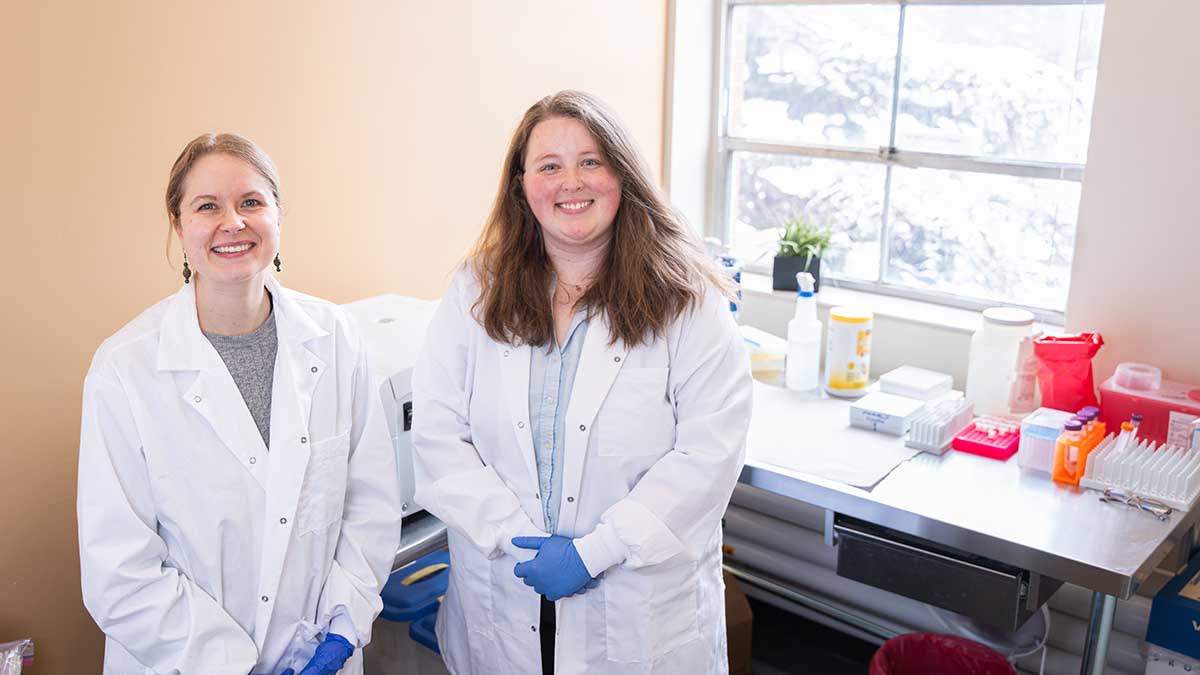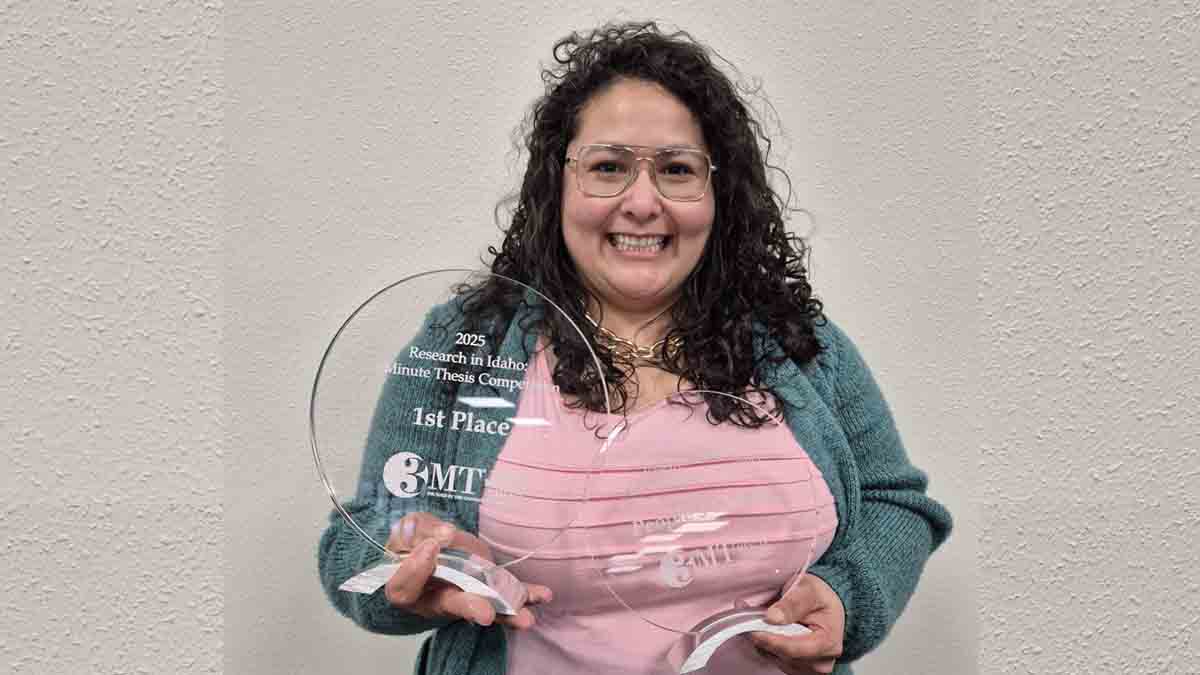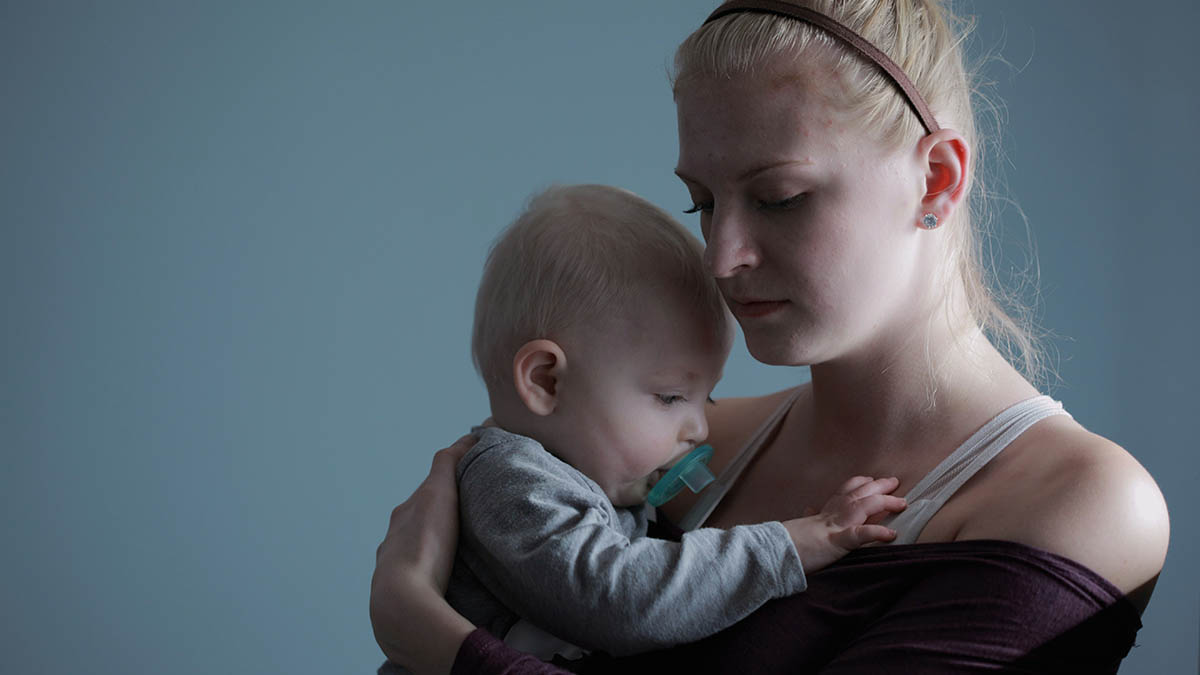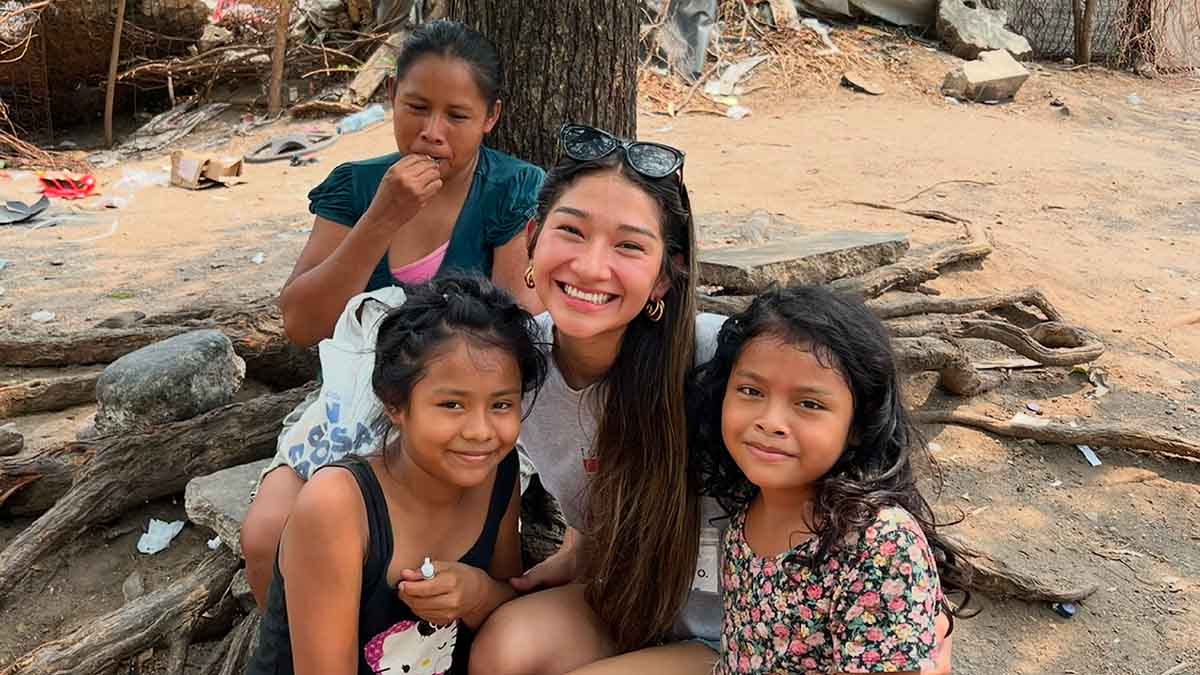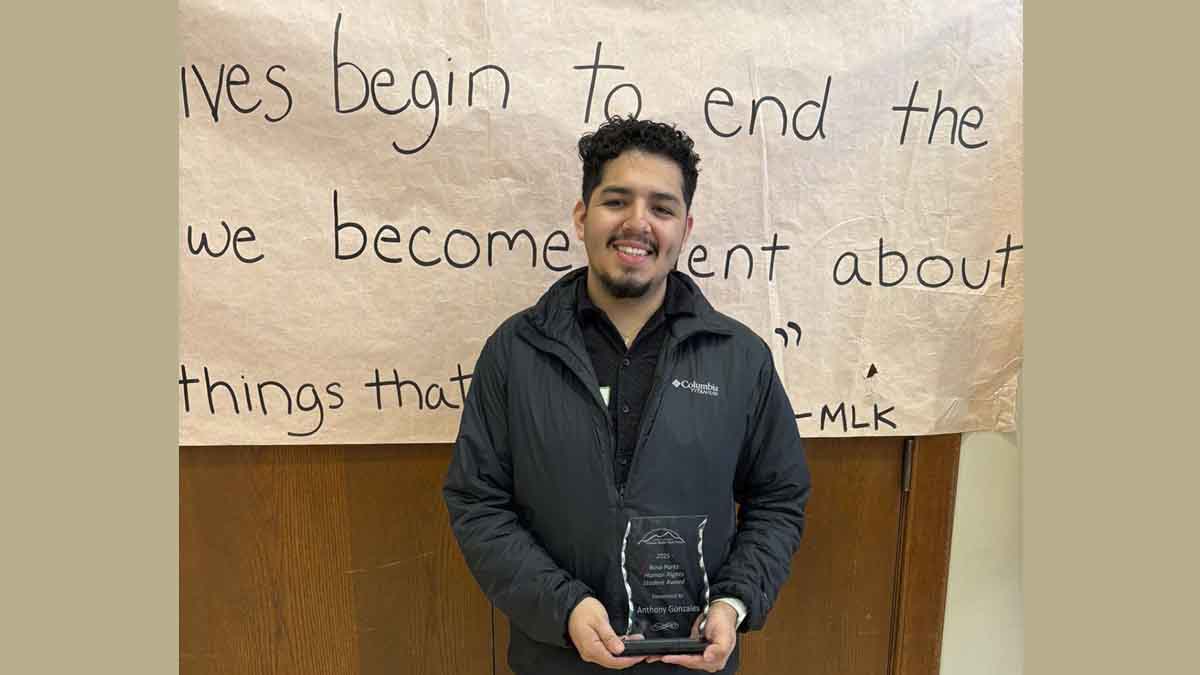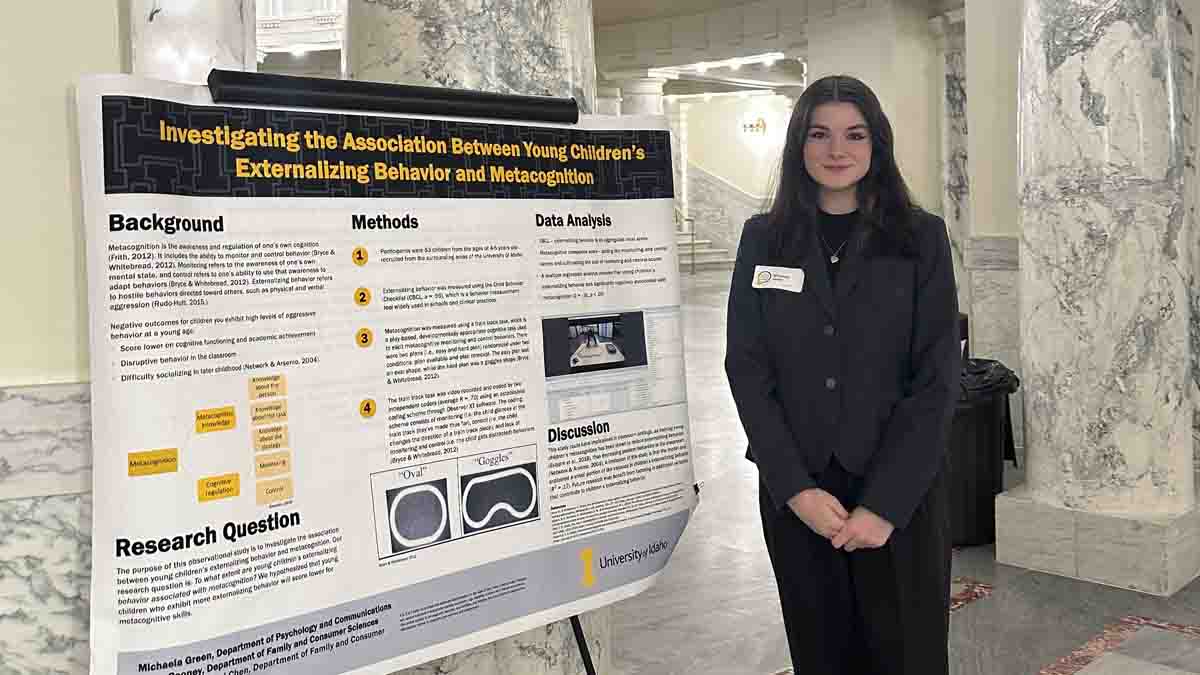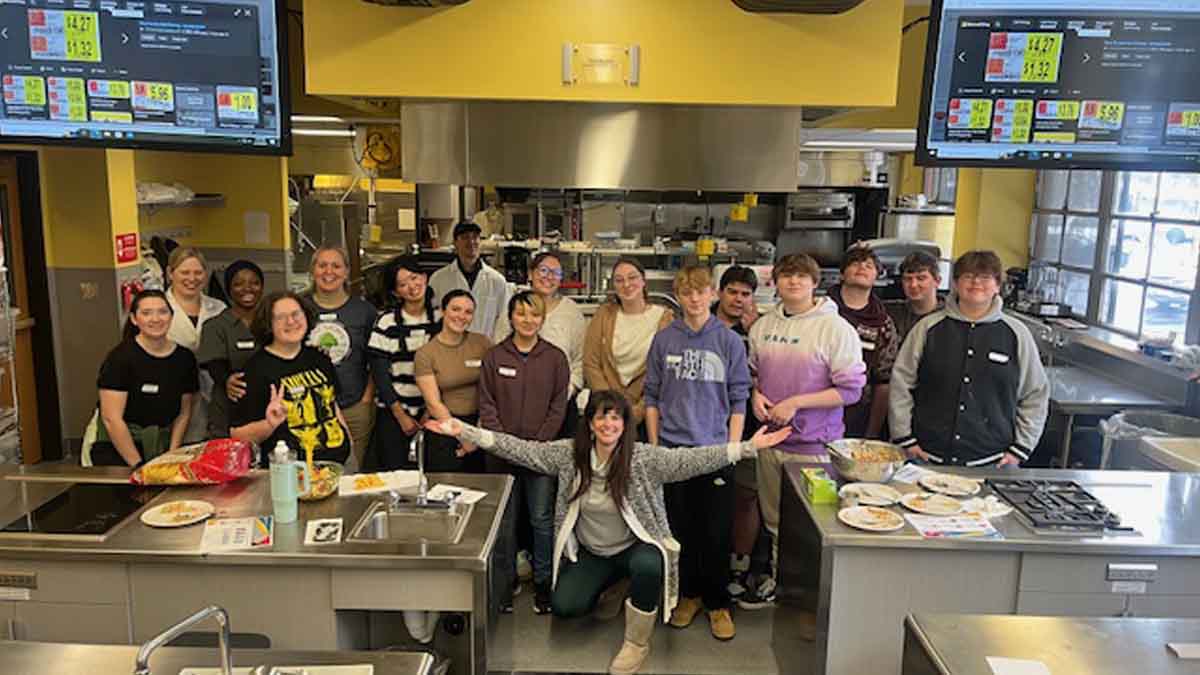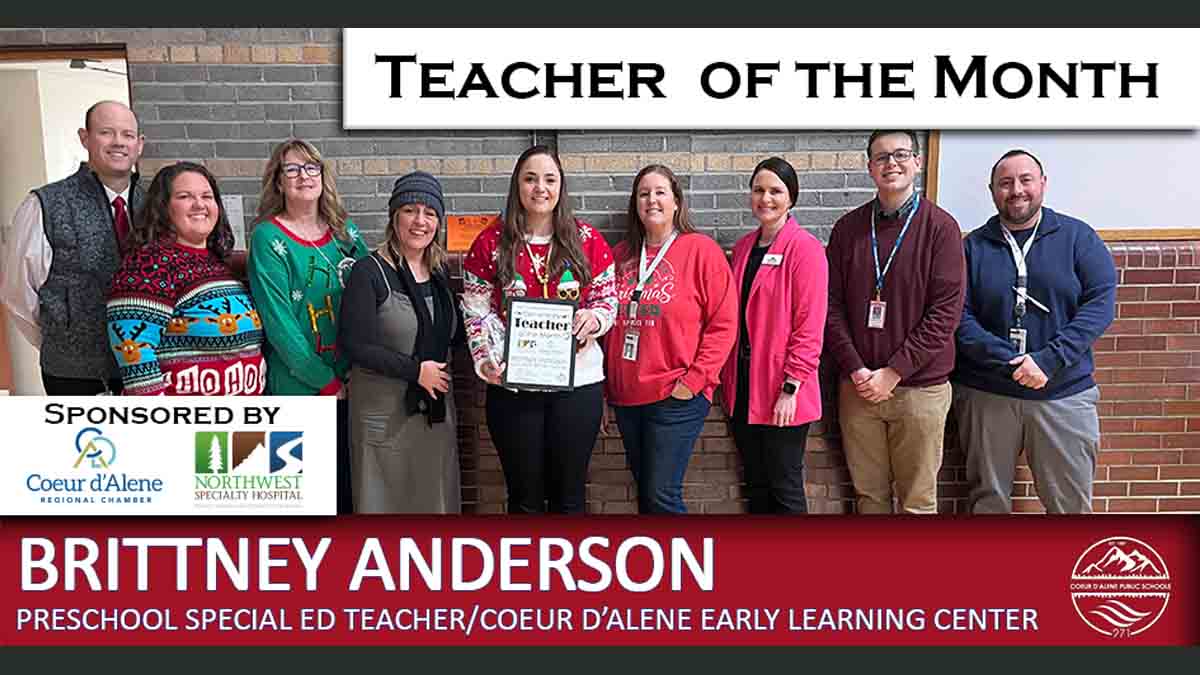FCS Connections, April 2025
Director’s Message
Charles Darwin, the renowned English naturalist, once observed, "It is not the strongest of the species that survives, nor the most intelligent that survives. It is the one that is the most adaptable to change." His words remind us that life is ever-changing, and our ability to adapt is what enables us to grow and thrive. While strength and intelligence are valuable, true success comes from embracing challenges, navigating new circumstances and finding innovative ways forward.
Strength, resilience and adaptability — these words perfectly describe the faculty, staff, students and programs that make up the Margaret Ritchie School of Family and Consumer Sciences. Since our humble beginnings at the turn of the 20th century, our school has continuously evolved to meet the shifting needs of society. We tackle real-world problems with evidence-based solutions, always infused with a deep sense of kindness and care. You’ll find inspiring examples of this in the latest issue of FCS Connections.
For instance, three of our faculty and several U of I students will travel to Guatemala this spring on a 10-day humanitarian trip to deliver much-needed menstrual products and lead workshops on sustainable nutrition and skirt construction — skills that will empower local women to improve the diets of their families and create garments to wear and sell. Additionally, the team will offer sessions on early childhood development and education, providing meaningful support to families in the community. This initiative builds on our ongoing global engagement, and we are so excited to continue fostering these impactful connections.
Closer to home, FCS is leading the way in expanding educational opportunities that will shape the next generation of family and consumer sciences professionals. Until recently, our school offered just one graduate degree (master’s in family and consumer sciences). However, in response to shifting accreditation requirements and growing student and faculty demand — not to mention U of I’s ambitious pursuit of Carnegie R1 status — our faculty have worked to launch multiple new graduate programs. These include the university’s first-ever doctorate in nutritional sciences, along with master’s degrees in dietetics, nutritional sciences and child development. The continued growth of these programs reflects both the dedication of our faculty and the increasing recognition of the importance of these topics to society. This spring, we celebrate the first graduates of our new doctoral program.
FCS faculty are also making an impact in research and community engagement. For example, assistant professor of human development and family studies Sarah Deming has been studying the health and wellbeing of pregnant and postpartum women for several years. Her research has provided crucial insights into the challenges faced by new mothers as they navigate the stresses of childbirth and infant care. Her work aims to find tangible solutions to better support women and their families during this transformative stage of life.
Change is a constant, but in FCS we embrace it as an opportunity for growth. Whether expanding our degree programs, pursuing international experiences and research partnerships, or developing future leaders in nutrition, FCS education, human development, child development and education, and apparel design and construction, we continue to evolve in ways that strengthen our school and its impact. In every challenge, I see the resilience, creativity and commitment of our faculty, staff and students, and I am endlessly grateful for their hard work and passion.
I hope you enjoy this issue of Connections, which celebrates the many remarkable aspects of what we do here in the beautiful and historic Niccolls Building. Please stop by for a visit anytime — it would be wonderful to see you!
 With gratitude,
With gratitude,
Shelley McGuire, Ph.D.
Director and Professor of Nutrition
Our Stories
First FCS Doctorates
Alexandra Gogel and Cassandra Partridge took a leap of faith to position themselves to earn the first doctorates in the history of University of Idaho’s Margaret Ritchie School of Family and Consumer Sciences (FCS).
When Gogel, of Gig Harbor, Washington, and Partridge, of Spokane, Washington, committed to pursue a doctorate in nutritional sciences at U of I, the program didn’t exist.

“There was communication about the hope that this would exist in the future,” Partridge recalled.
Thanks to hard work and rigorous scientific research by the candidates, a willingness to build a doctoral program on the fly among FCS faculty and leadership and a bit of luck, Gogel and Partridge are poised to become the school’s first doctorate in May.
“To be frank, it was on a lot of trust that this would happen,” Gogel said. “I’m excited to see how this grows and benefits the university, as well as the students who want to learn nutrition.”
The graduate students had a backup plan in case their FCS doctoral program didn’t materialize according to schedule. When they began their doctorate pursuit, they enrolled in the Department of Animal, Veterinary and Food Sciences (AVFS), working under University Distinguished Professor Mark McGuire as their advisor. They were prepared to graduate with doctorates in AVFS if necessary.
AVFS affords doctoral students flexibility to take upper-level courses that are relevant to their dissertations, and Gogel and Partridge also took seminar classes in both FCS and AVFS, providing themselves with a broad range of knowledge about both disciplines. About two years ago, when the doctorate in nutritional sciences became official, they both switched to the FCS program, working under the school’s director, Professor Shelley McGuire, as their advisor.
Both of their dissertations involve research in human milk. Gogel has been studying how the milk microbiome may vary from breast to breast, within a day or within a single feed. She’s also collaborated with Johns Hopkins University on a study of how the human milk microbiome is associated with growth and size of infants in a rural Bangladeshi population.
Partridge is studying how a mother’s diet affects the components of her milk. A primary focus is the possibility of allergenic peptides and proteins from cow’s milk and soy to be passed on in a mother’s milk, potentially inducing an allergic reaction in the infant.
Gogel earned a bachelor’s in zoology from Washington State University and applied for veterinary school at WSU, while also working full time at a Moscow veterinary clinic. After two consecutive years of getting placed on a waiting list for veterinary school, she enrolled in U of I’s master’s degree program in family and consumer sciences. She initially planned to reapply for veterinary school after completing her master’s program, which she figured would boost her resume. She changed plans, however, after she had the opportunity to present some of her first-year master’s research on human milk at a conference.
“My world just opened up. There were scientists from all over the world who were really interested in the work I was doing — who were nice and inviting and ready to talk to me and wanted to engage in milk research,” Gogel said.
After returning from the conference, Gogel approached Shelley McGuire about switching from her master’s program to a doctoral program in nutritional sciences.
Partridge has a long history as a Vandal. She earned both her bachelor’s and master’s in FCS from U of I, as well as a bachelor’s in Spanish and a registered dietician credential. She had an internship at Providence Sacred Heart Medical Center in Spokane and went on to work as a clinical dietician in the hospital’s intensive care unit for three and a half years but decided against making a career in dietetics. Instead, she enrolled in graduate school at U of I in 2018.
Two years later, after Partridge finished her master’s program, Mark and Shelley McGuire invited her to spend a year working as a research associate with their laboratory, where she served as research coordinator on a study that has become a dissertation project as she seeks to wrap up her doctorate in nutritional sciences.
“There’s something special about the Margaret Ritchie School of Family and Consumer Sciences that makes it even more special that we would get to be the first ones in the school’s history to do this,” Partridge said. “It’s really exciting to think of how many people will follow in our footsteps and continue to make the degree and the college more valuable to our community and the academic field.”

3-Minute Thesis Winner
Rita Franco, a University of Idaho doctoral student studying nutritional sciences, chose to leave her native Guatemala and continue her education in the U.S. in part because she wanted to improve her English-speaking skills.
She’s checked that box in a big way.
On Feb. 11, Franco placed first in the Idaho Statewide 3-Minute Thesis contest, which is a public speaking competition in which participants are tasked with presenting their research to live and virtual audiences in three minutes or less.
Franco, who is studying under Assistant Professor Ginny Lane in the Margaret Ritchie School of Family and Consumer Sciences, faced 11 other graduate students from U of I, Boise State University and Idaho State University during the contest, hosted at the Bennion Student Union Building at U of I Idaho Falls. She also won the People’s Choice Award and took home $2,500 in prize money.

Research Benefitting Mothers
Just 10% of the new mothers Sarah Deming interviewed for a long-term research project on perinatal well-being had been diagnosed by a doctor as being depressed or having an anxiety disorder.
A year removed from childbirth, however, more than half of the group recognized in retrospect that they struggled through the postpartum period in many ways and could have used much more help.
Deming joined University of Idaho’s Margaret Ritchie School of Family and Consumer Sciences (FCS) last November as an assistant professor of human development and family studies. Based on her continuing research, Deming has become convinced that more education is needed to prepare new and expecting mothers, as well as the people they rely upon for support, for postpartum stressors.
In the weeks following childbirth, new mothers often cope with sleep deprivation, anxiety about the safety of their baby, difficulties with breastfeeding, the lack of access to needed services and the physical toll of recovering from childbirth These postpartum stressors can have lasting effects on the well-being of mothers and the quality of their relationships with both their babies and their partners.
“One of the biggest things I’m really homing in on is the gap in knowledge and expectation — what people were really prepared for,” Deming said. “There’s a lack of comprehensive education around both what can happen during childbirth and especially during that postpartum period.”
Deming began studying challenges faced by new mothers as a master’s student in FCS at U of I, working with sociology and FCS faculty on a thesis analyzing how having children affects women’s income and employment trajectories.
She continued her focus on the impact of children on mothers’ economic well-being while completing a doctorate in sociology from Washington State University, which she earned in 2023. For her dissertation, she interviewed 62 pregnant women from Moscow, Coeur d’Alene, Pullman and Spokane, Washington, to explore how socioeconomic resources shaped their plans for life and work after having a baby. While working as a postdoctoral research fellow for University of Idaho’s Washington, Wyoming, Alaska, Montana and Idaho (WWAMI) Medical Education Program, Deming reconnected with 55 of her original sample for follow-up interviews one year after their births. She broadened her emphasis to also encompass physical and emotional well-being during the postpartum period, as well as how family friendly policies and social supports can facilitate more positive maternal outcomes.
“In the second round there was a subset of women who had thought they would have more children and said, ‘I will not, and I cannot do that again,’” Deming said. “They looked back and said, ‘That was harder than it needed to be.’”
The interviews span from 90 minutes to two hours each. While Deming has a list of prepared questions, she finds most women key in on a specific challenge they had to overcome. Women living in rural communities often focus on the lack of resources for new mothers. One mother from a rural community described having to routinely drive 45 minutes throughout the winter to medical appointments when her baby wasn’t gaining enough weight. Single mothers and mothers from low-income households also discussed having insufficient resources available to them, as well as inadequate paid parental leave.
This summer and fall, Deming plans to meet with her sample of mothers again, as their children reach their third birthdays. She’s most interested in observing how their employment plans have continued to evolve, especially among mothers who have had, or plan to have, additional children.
She intends to write a book based on her collective body of interviews.

Broader U of I group to make return Guatemala humanitarian trip
Amaranth — a nutty-flavored and nutrient-dense pseudo-grain containing all nine essential amino acids — was a staple in the Guatemalan diet before the Central American country was colonized.
Assistant Professor Ginny Lane, with University of Idaho’s Margaret Ritchie School of Family and Consumer Sciences (FCS), and a team of food and nutrition students hope to play a role in the superfood making a comeback on dinner tables in the rural Gualán area of eastern Guatemala.
Ten U of I students and three FCS faculty members — including Lane, Instructor Chelsey Lewallen and Assistant Professor Sarah Deming — are scheduled to depart on a 10-day humanitarian return trip to the town in the Guatemalan department of Zacapa on May 11.
Lane and her students will host workshops teaching Guatemalan locals how to sustainably improve their diets by raising nutritious native plants, such as amaranth, and incorporating them into their diets.
“Most of these students have not been exposed to what they’re going to see on this trip — the level of poverty some people live in,” Lane said. “These trips are life changing. They really help them to see life differently.”
Featured Stories
Faculty and Student Success
Anthony Gonzalez, a senior from Rigby studying apparel, textiles and design, was invited to attend the Latah County Human Rights Task Force Martin Luther King Jr. Human Rights Breakfast, where he was presented the Rosa Parks Human Rights Achievement Award.
Michaela Green, an undergraduate research assistant working under Assistant Professor Shiyi Chen, recently participated in the U of I Legislative Ambassador Program, where she had the opportunity to showcase her research at the Idaho State Capitol on Jan. 29. Her project is entitled “Investigating Association Between Young Children’s Externalizing Behavior and Metacognition.” Green will also accompany Chen to present her study at the 2025 Society for Research in Child Development conference in Minneapolis, Minnesota, this April.
The Carmelita Spencer Foods Laboratory is collaborating this semester with Paradise Creek Regional High School in Moscow on a program through which FCS students taking Food and Nutrition 492 are teaching the Teen Cuisine Eat Smart Idaho curriculum to 10 high school students. The high school students will visit the foods lab for six weeks to gain hands-on food preparation experience, and the collaboration will provide the FN 492 students the opportunity to teach a nutrition education curriculum.
An early childhood education graduate, Brittney Anderson, ’20, who is a preschool special education teacher with Coeur d’Alene School District 271, was chosen as the Northwest Specialty Hospital and Coeur d’Alene Regional Chamber Education Committee’s Elementary Teacher of the Month for December 2024.
Sandi Klinger is working on a bulletin board that will feature FCS student awards, highlights and recognitions throughout each semester.
Congratulations to the following faculty members who received promotion and tenure.
- Shiyi Chen — granted tenure and promoted to the rank of Associate Professor
- Yimin Chen — granted tenure and promoted to the rank of Associate Professor
- Luke Erickson — promoted to Extension Specialist with rank of Professor
- Chelsey Lewallen — promoted to rank of Senior Instructor




Events
- April 30 — CALS Awards Banquet, International Ballroom
- May 5-9 — Food for Finals, Ag Biotech Courtyard
- May 8 — Sonya Meyer's Retirement Celebration, RSVP by May 1, 1912 Building
- May 10 — Spring Commencement Reception, Seed Potato Germplasm Laboratory
- June 23-27 — FCS Base Camp for FCS teacher professional development
- June 25-28 — Summer Design Days for high schoolers
Email calsnews@uidaho.edu with comments or suggestions. Sign up to receive communications from the College of Agricultural and Life Sciences/University of Idaho Extension.







